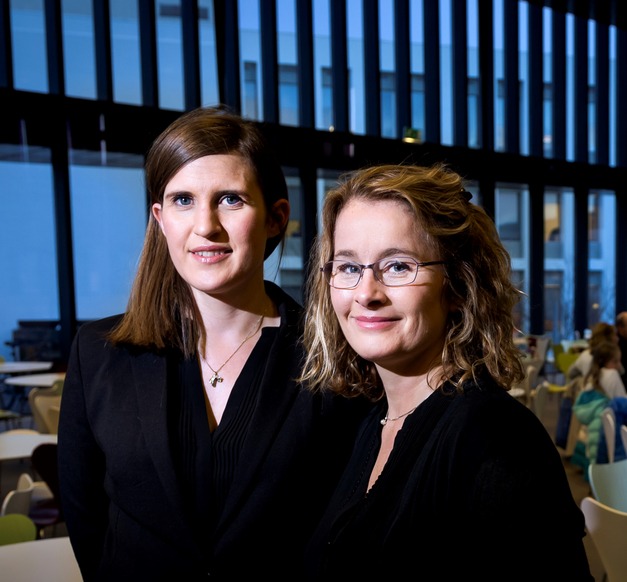Arndís Vilhjálmsdóttir and Ragna Benedikta Garðarsdóttir
"Income inequality in Iceland increased significantly between 1993 and 2007, and research indicates that the mental health of adolescents may have declined during the same time period. In our study, we attempt to connect these two observations, using data from Statistics Iceland and The Icelandic Centre for Social Research and Analysis, to see if there is any correlation", says Ragna Benedikta Garðarsdóttir, Senior Lecturer in Social Psychology, who—together with her doctoral student, Arndís Vilhjálmsdóttir—researches whether income inequality is detrimentally linked with indicators of mental health among Icelandic adolescents.
In recent years, the debate regarding the division of quality of life in society as well as the distribution of wealth and income has increasingly shifted in focus. It is clear that Ragna's and Arndís's research will be an important contribution to this debate.

As with many other scholars, the economic collapse sparked the idea for their research project. "I studied materialism and life satisfaction following the economic crash. My research showed that life satisfaction increased for those with low income after the crash, but decreased somewhat for those with the highest recorded incomes. One possible explanation may be that during the years following the economic collapse, income inequality decreased considerably. As a result, the perceived inequality, or so-called status anxiety, of the lower income group was less. We therefore considered it necessary to investigate the effects of income inequality in more depth", says Ragna about how the research project came to be.
Arndís points out that psychologists have so far paid little attention to psychological effects of income inequality. "The results of our first study indicate that in 2006, when income inequality in Iceland was high, adolescents living in neighbourhoods where the income gap was wider reported more symptoms of emotional distress than adolescents living in neighbourhoods where income inequality was low. Now we are researching this association over time. Preliminary results suggest that although changes in income inequality are linked with changes in emotional distress, this relationship may depend on the larger societal context and the type of emotional distress", says Arndís.
In recent years, the debate regarding the division of quality of life in society as well as the distribution of wealth and income has increasingly shifted in focus. It is clear that Ragna's and Arndís's research will be an important contribution to this debate. "Income distribution is part of our shared social structure. Which means, inequality can affect many aspects of our daily lives. When it comes to public health, income inequality and its social impact have been identified as one of the biggest challenges of the 21st century. This topic is, therefore, relevant for political decisions on the structure of economic systems", concludes Ragna at the end of the interview.


